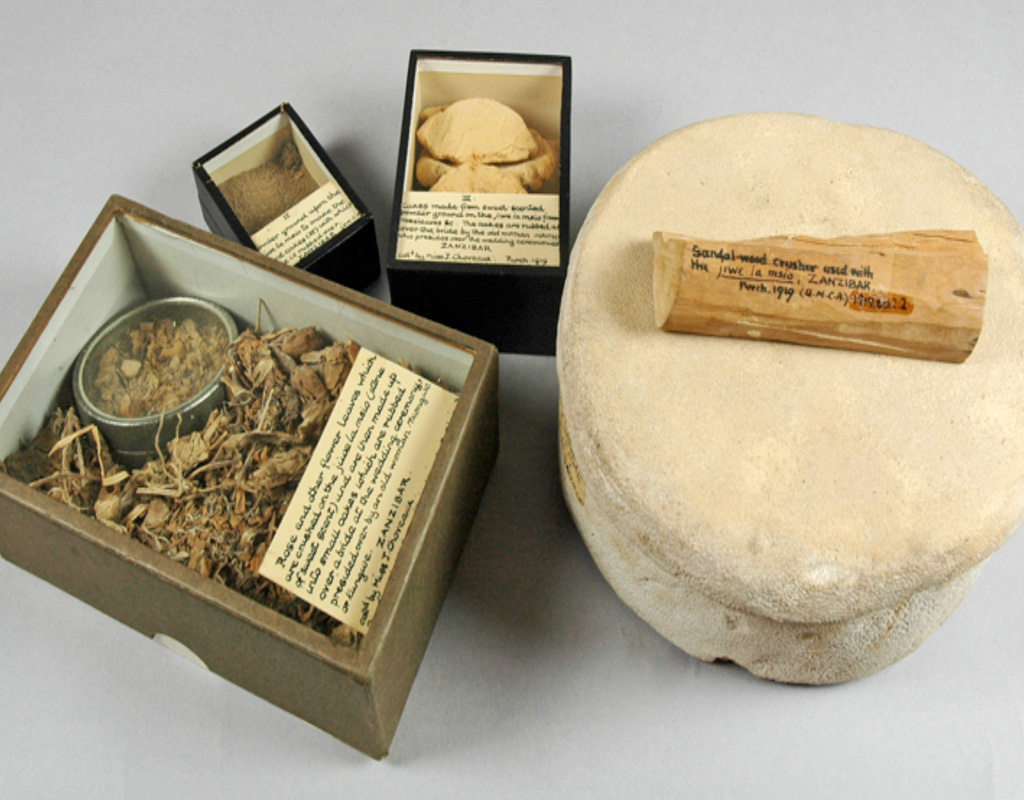Scent cakes
Round cakes of scent, rose petals, crushed rose petals, a wooden grinder, and a coral stone - Zanzibar, Tanzania
 Purchased from the Universities Mission to Central Africa through Josephine Choveaux in 1919; 1919.66.2 .1–.5These items were used in the preparation of cakes of scent that were rubbed over brides at their wedding ceremonies. The rose petals were crushed with a sandalwood rubber on the coral stone and the loose powder formed into the cakes. Only women were involved in the process so the stone, known as jiwè la msio ('stone of sweat scent'), was wrapped in a cloth to prevent men from seeing it.
Purchased from the Universities Mission to Central Africa through Josephine Choveaux in 1919; 1919.66.2 .1–.5These items were used in the preparation of cakes of scent that were rubbed over brides at their wedding ceremonies. The rose petals were crushed with a sandalwood rubber on the coral stone and the loose powder formed into the cakes. Only women were involved in the process so the stone, known as jiwè la msio ('stone of sweat scent'), was wrapped in a cloth to prevent men from seeing it.
Roses have a long been utilized for their scent. Fossilised rose flowers and hips more than 30 million years old have been discovered in Europe and petrified rose wreaths have been found in Ancient Egyptian tombs. Persia was a major centre for the production of essential rose oil (known as 'attar of roses') from the heavily scented damask rose. The Greeks used rose-scented olive oil as a perfume and it played a vital part in helping the somewhat plain-looking Cleopatra seduce the younger Mark Anthony. The Roman Emperor Nero, once asphyxiated one of his guests with the thousands of rose petals he liked to shower upon them from the ceiling of his dining hall.
Although rose fragrance can be produced in a laboratory, essential rose oil is still widely available today and is recommended for reducing symptoms of stress and depression. Its cost is relative to the labour and expense involved in its production: 2.5 tons of fresh rose petals yield just a single pound of oil.
